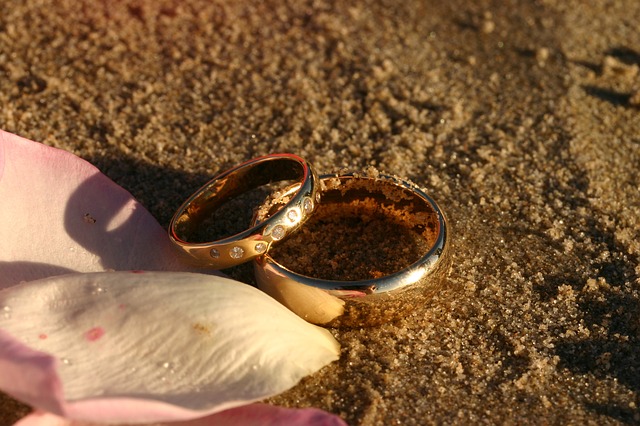How Property ownership with Thai spouse works is a common question for foreigners married to Thai nationals. Thai law has clear rules on what foreigners can and cannot own, and being married does not automatically grant land ownership rights. This guide explains the legal position, available protections, and the structures most often used by foreign spouses in Phuket.
Land Ownership and Legal Restrictions
-
Foreigners are not permitted to own land in Thailand.
-
Even when married to a Thai citizen, any land must be registered solely in the Thai spouse’s name.
-
Foreign spouses may legally own condominium units (within the 49% foreign quota), but not land or villas on land.
Legal Safeguards for Property Ownership with Thai Spouse
When land is purchased in a Thai spouse’s name, a formal declaration must be filed at the Land Office confirming that funds are solely the Thai spouse’s.
-
Usufruct Agreement
Grants the foreign spouse the right to use and live in the property during their lifetime, but not ownership of the land. -
Lease Agreement
The Thai spouse may lease the property to the foreign spouse for up to 30 years. The lease should be registered at the Land Office to be legally enforceable. -
Mortgage Registration
If the foreign spouse provides funds, registering a mortgage can help protect financial interests. -
Prenuptial or Postnuptial Agreements
Legal contracts that clarify financial contributions and help protect rights in cases of separation or inheritance.
Ownership of Structures (Superficies)
While land must remain in the Thai spouse’s name, a superficies agreement may allow the foreign spouse to legally hold rights to the building or structure. This arrangement must be registered with the Land Office to be valid.
Risks and Common Mistakes
-
Using informal or verbal agreements without proper registration.
-
Entering into nominee arrangements, which are illegal and may be challenged.
-
Not registering usufructs, leases, or mortgages, leaving the foreign spouse legally unprotected.
Matrimonial Property Rules (What the Land Office Requires)
-
Foreigners cannot own land. If land is bought during the marriage, it must be registered solely in the Thai spouse’s name.
-
Source of funds declaration: The Land Office will require a signed Letter of Confirmation that the purchase money is the Thai spouse’s separate property (not shared marital funds).
-
Why this matters: Under Thai matrimonial law, assets are classed as separate property (Sin Suan Tua) and marital property (Sin Somros). The declaration helps show the land is the Thai spouse’s separate property, consistent with the law and Land Office practice.
Wills & Succession Planning for Property Ownership with Thai Spouse
Property ownership with Thai spouse is clearer and safer when each spouse has a Thai Will specifically covering Thai assets.
Why make a Thai Will if you own a property with a Thai spouse?
-
Thai courts and the Land Office can more easily administer Thai-situs assets (condos, leases, registered rights, Thai bank accounts).
-
Avoids delays and translation/legalisation costs tied to relying only on an overseas Will.
-
Lets you name an executor in Thailand and specify how registered rights (lease/usufruct/superficies/mortgage) should pass.
-
Thai succession is governed by the Thai Civil and Commercial Code, which sets out inheritance rights and procedures.
Practical tips for a Thai Will
-
Cover: any condominium unit, registered lease, usufruct, superficies, and mortgage rights; Thai bank accounts and vehicles.
-
Keep the Will bilingual (Thai + English) where possible; ensure two competent witnesses sign as required under Thai law.
-
Name backup executors; keep contact details current.
-
Review after major life events (marriage, divorce, birth, significant purchase).
If a Foreigner Owns Property with a Thai Wife and She Passes Away
-
Land title (in Thai spouse’s name) passes to heirs per the Will (or Thai intestacy if no Will). A foreign spouse still cannot hold land title directly, but may:
-
continue using the home if protected by a registered usufruct or lease;
-
have rights to the building if a superficies was registered in their name;
-
receive proceeds if the land is sold by the estate and the Will so provides.
-
-
If there is no Will, Thai intestacy rules apply; the court appoints an administrator and distributes to statutory heirs.
If the Foreign Spouse Passes Away
-
Condominium (foreign freehold): passes to heirs/legatees (subject to foreign quota compliance for the successor).
-
Registered lease: enforceability by heirs depends on contract wording (assignment/legacy clauses) and proper registration—draft carefully.
-
Usufruct: is a lifetime right and ends on the holder’s death.
-
Superficies: can be time-limited or for life; if time-limited and drafted as transferable, it can pass to heirs.
-
Mortgage/secured loan registered in your favour: the claim passes to your estate.
How Common Structures Behave at Inheritance (Quick Reference)
-
Lease (up to 30 years): Personal right; may be enforceable by heirs if the contract allows assignment/legacy and is properly registered.
-
Usufruct: Terminates on death of the usufructuary.
-
Superficies: Transferable/inheritable if drafted that way and registered for a fixed term; a life-superficies ends at death.
-
Mortgage: Creditor’s right passes to heirs.
Simple Document Checklist
-
Thai Wills for each spouse, covering Thai assets and registered rights.
-
Copies of title deed (Chanote), purchase agreements, Land Office receipts.
-
Registered lease / usufruct / superficies / mortgage contracts.
-
Letter of Confirmation (source of funds) filed at the Land Office.
-
Executor and beneficiary contact details (kept current).
Summary: Property Ownership with Thai Spouse
-
Foreigners cannot own land in Thailand, even when married to a Thai national.
-
Property ownership with Thai spouse is limited to legal protections such as usufruct, lease, superficies, or mortgage.
-
These tools safeguard the foreign spouse’s rights but do not provide direct land ownership.
-
Condominiums under the foreign quota remain the clearest form of freehold ownership available.
Related Guides
Conclusion
Property ownership with Thai spouse is possible only under carefully defined legal structures. While foreign spouses cannot directly own land, protections such as leases, usufructs, superficies, and mortgages can provide long-term security. For many, condominium freehold ownership remains the simplest and most practical option in Phuket.
Disclaimer: The information contained in this article is provided for general informational purposes only and does not constitute legal, financial, or investment advice. While every effort has been made to ensure accuracy at the time of publication, property laws and regulations in Thailand are subject to change. Readers should always seek independent legal advice from a qualified Thai lawyer before making any property-related decision or transaction.



Social Contact